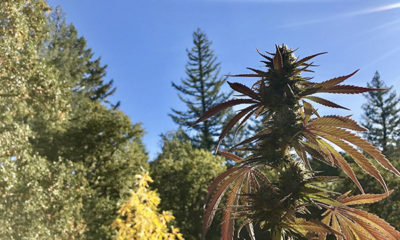Says the White House’s Brewmaster-in-Chief
His favorite brew, it is said, is Yuengling Lager. At the first major cultural flare-up to dominate news headlines, he invited a black Harvard professor and a white cop over to discuss racial matters over domestic beer. He is such a fan that he invented his own brews, popular recipes with palatable names like White House Honey Brown Ale. He goes out of his way to publicize all of the above.
He’s the President of the United States, Barack Obama, and he wants to discourage drug use.
I, like most Americans, see nothing wrong with responsible alcohol consumption by adults who don’t allow the habit to control their lives. There is nothing intrinsically wrong with one of our leaders depicting a responsible use model for those members of the country who choose not to abstain. What is wrong with this picture is the pernicious repetition of a dangerous linguistic lie – one which has justified devastating policies.
The perverse assumed dichotomy which places alcohol in a separate category as “drugs” has a long historical basis in the U.S. The false opposition can be traced back as far as the turn of the 20th century, when twin movements were gaining political traction on the national stage. On one hand were the “Progressives,” a group of citizen-activists who rallied to end a cavalier lack of pharmaceutical regulations which allowed dangerous chemicals like cocaine or heroin to appear in children’s medications. The Progressives targeted pioneering federal legislation like the Pure Food and Drug Act of 1906 and the Harrison Act in 1914, which proscribed a group of chemicals formerly known as medicines and relabeled them as “narcotics,” a rather loosely-defined term which eventually came to define all substances disfavored by the public at large. Over time, criticism of the illogical denomination caused “narcotic” to fall out of favor as a catch-all term; eventually, policy makers began to refer to this underclass of chemicals as, simply, “drugs.”
The other pre-eminent movement of public morals active at the turn of the 20th century was the Temperance movement – a powerful group of religious organizations which pushed the failed Prohibition experiment through the Constitutional amendment process. The Temperance coalition, although allied with the Progressives on some causes, had very different roots: as opposed to the national platform of the Progressives, the Temperance machine moved from state to state over long decades before finally bursting onto the national stage before 1920. And while the Progressives railed against a variety of causes (like pharmaceuticals and the tainted American food supply), Temperance focused like a laser beam on a single target: alcohol.
Today, the legacy of Temperance is the 21st Amendment, which enshrines the drug/alcohol dichotomy into law. The amendment, a constitutional guarantee against any further prohibitions, applies to alcohol only, giving further reason for modern policymakers to distinguish between the two: any law which prohibited “both drugs and alcohol” would violate the 21st amendment. Thus, alcohol receives separate treatment under law.
None of this was Obama’s doing; all he is doing now is perpetuating an archaic double standard. But it’s a double standard with consequences. Alcohol is one of the leading killers of Americans today, whereas in all of human history not a single person has ever fatally overdosed on marijuana. What kind of “drug use” should the president be encouraging?


























